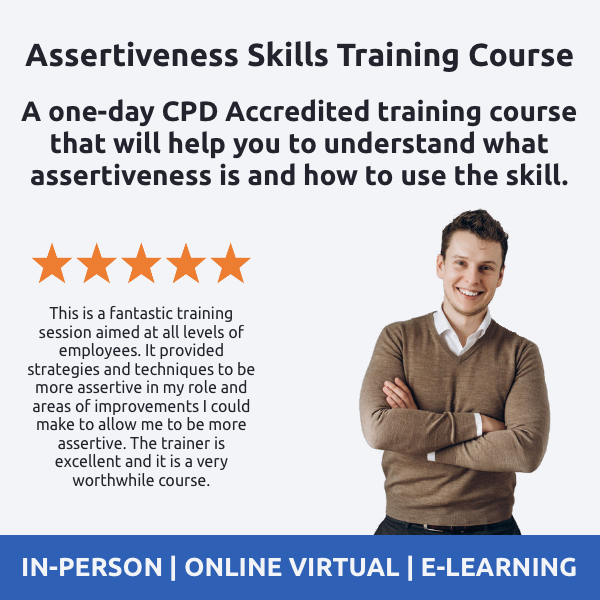[toc]
Do You Find It Difficult to Say No?
A common question that comes up in many of our assertiveness skills courses is how to say no. Do you find it difficult to say no to people? Many of us do. Many of us don’t like to let people down and try to please people. In most cases, this is just because we don’t know how to say no.
But, we have to realise at some point that we can’t say yes to everyone. It puts us at risk of utilising the precious time that we should be spending on completing things on our own agenda, not other people.
Why Should We Say No?
For many, the answer is simple, if we keep saying yes, we end up with too much to do. And sadly this is true. The more we say yes to things the more time we spend working on other peoples tasks and less time on our own.
The other issue is, if we are seen as the person that keeps saying yes, people will come to us more and more. There is a term in time management that says ‘when we want something done, we take the path of least resistance. In other words, we go to the people who don’t put up barriers when we ask for something.
That said, we don’t want to be seen as the person that always says no too. This is why we must learn how to say no in the right way.
How We Respond When Asked for Something
In the book The Power of a Positive No: How to Say No and Still Get to Yes by William Ury, the author explains that there are three responses to someone who asks us to do something we don’t want to do:
- Accommodation – We say yes when we really want to say no. This usually happens when we value the relationship of the person asking above the importance of our won interests.
- Attack – We say no poorly. Sometimes we are fearful or resentful of the request and overreact to the person making the request.
- Avoidance – We say nothing. We may be afraid of offending the other person, so we say nothing and hope it all goes away. But, it rarely does.
Sometimes the above responses spill over into each other, making the situation a whole lot worse.
How to Say No – The Positive No
William Ury suggests a fourth strategy or response that doesn’t require us to sacrifice our priorities or the relationships that we have with others. He describes it as a positive no.
This simple formula employs a YES – NO – YES response.
This ‘Positive No’ has three parts:
- Yes. It begins by saying yes to yourself and protecting what is important to you
- No. It then moves on with a matter-of-fact No that sets clear boundaries
- Yes. A positive no ends with a yes that affirms the relationship and offers another solution to the person’s request.
So, for example:
“Thank you for considering me to do this task for you” – the yes
“Unfortunately, I can’t do this for you as I have other pressing things to do that have deadlines that can’t be moved” – the no.
“You could try asking Joe to do this for you, or I can offer you some help on this day when I have less to do.”
People’s reactions to no tend to be negative as we don’t always explain the reasons or provide alternative solutions.
Assertiveness Skills Training Course
Do you struggle to say no? Then why not attend one of our Assertiveness Skills Training Courses.
Our Assertiveness Skills Training Courses offer lots of practical help on saying no, building better relationships, communicating more effectively and confidently.
See the full details Assertiveness Skills Training Course and learn how to say no with more confidence.



